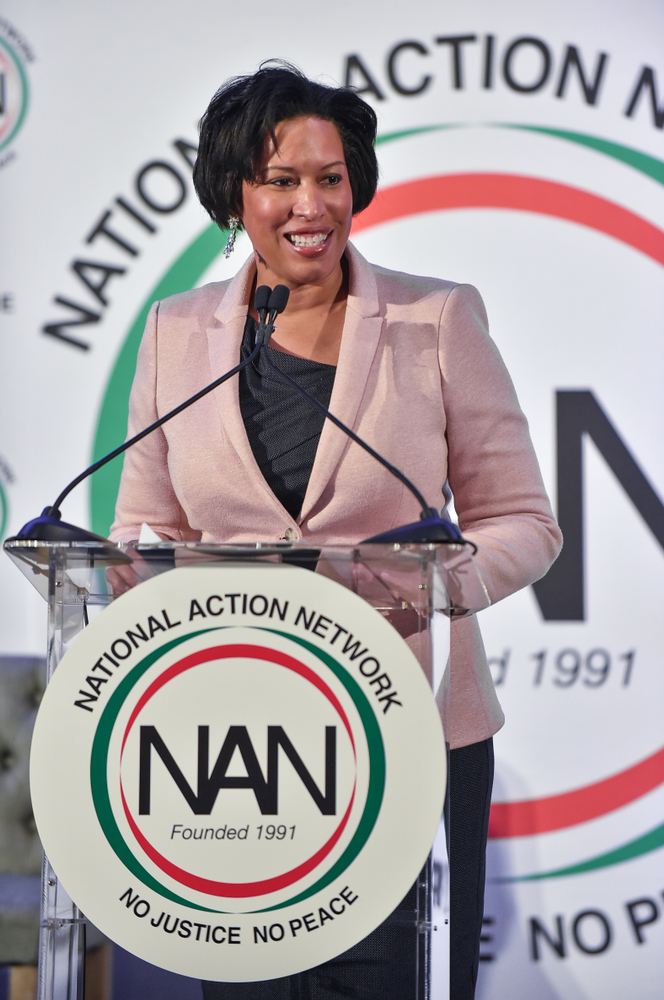Black mayors across the country have signed on to a resolution imploring states’ leaders to repeal regulations that prohibit them from enacting local strategies to reduce the spread of the coronavirus.
This resolution comes after Georgia Gov. Brian Kemp sued Atlanta Mayor Keisha Lance Bottoms for enacting a mandatory mask requirement in the state capital.
In passing the resolution, the African American Mayors Association cited research by the COVID Racial Data Tracker that shows Black people are dying from COVID-19 at 2.5 times the rate of white people.
The data tracker, a joint project of the Antiracist Research & Policy Center and the COVID Tracking project, reports that so far, more than 28,300 Black people have lost their lives to COVID-19. That is 23% of the deaths where race is known.

"State, local and tribal governments are uniquely positioned to determine the level of mitigation required to combat the virus in their communities," the resolution states. Mayors Bottoms, Muriel Bowser of Washington, D.C., and Sylvester Turner of Houston are among those who signed the resolution.
RELATED: Employers must tread carefully in accepting coronavirus stimulus money
RELATED: As coronavirus changes real estate, scammers pounce
The resolution states that the Centers for Disease Control protocols includes social distancing practices and use of cloth face coverings, with some exceptions. It further states that “community mitigation efforts aim to reduce the rate at which someone infected comes in contact with someone not infected, or reduces the probability of infection if there is contact.”
Numerous local communities across the country have already implemented local COVID-19 regulations, including mandating masks. But even as the numbers continue to climb, Kemp and some other governors around the country argue that only heads of state governments, not local governments, have the authority to enact health policies.
"As the mayor of the city of Atlanta, Mayor Bottoms does not have the legal authority to modify, change or ignore Governor Kemp's executive orders," Kemp’s complaint states.
The complaint, seeking declaratory and injunctive relief against Bottoms and the City Council, notes that Kemp issued a public health emergency order on March 14 that gives him “broad emergency powers to protect public health and those powers extend commensurate with the duration of the public health emergency.”
It further states that Kemp has the power to suspend municipal orders contradictory to any state law or executive order.
“Local governments, such as the city of Atlanta, do not have the ability or authority to regulate and control the state of Georgia,” the complaint continues. “As the mayor of the city of Atlanta, Mayor Bottoms is charged with implementing the terms of Governor Kemp’s COVID-19 executive orders within the city.”
What Kemp does require in Georgia is for no more than 50 people to gather, staying six feet apart. He has also set mandatory criteria for businesses and requires shelter-in-place for those living in care facilities or who are medically fragile. He has not implemented a mandatory mask requirement for any area of the state.
A hearing on Kemp’s complaint was cancelled after a second judge recused herself.
"Judge (Kelly) Ellerbe notified all of the parties that she spoke with an appellate judge to talk about a prior opinion that she felt may have some bearing on the issues in this case,” Attorney General Chris Carr said in a statement. “Judge Ellerbe became concerned about having had this discussion, and she immediately notified the parties. Our office appreciates Judge Ellerbe’s transparency and professionalism."
The case was then handed over to Judge Shawn LaGrua, who also recused herself because she had previously worked as Inspector General when Kemp was Secretary of State.
The suit has now been assigned to Judge Jane Barwick, but no new hearing date has been set.
More countries requiring masks
Numerous countries around the world are embracing mandatory mask policies as their economies open back up. In France, beginning Monday, face coverings are required in all public enclosed spaces. And Friday, England is making masks mandatory in supermarkets and other shops.
Richard Stutt, a postdoctoral researcher at Cambridge University, recently authored a peer-reviewed study that concluded universal use of face coverings could help to significantly reduce the spread of COVID-19.
The study explores populations wearing face masks and how well they work.
“We distinguish between two scenarios: face masks worn after symptoms are expressed and face masks worn all the time. By ‘all the time’, we mean compliance with normal facemask procedures when in public, irrespective of whether or not COVID-19 symptoms are being expressed.”
It showed there were instances where face masks could make a difference.
“When 100% of the public wear facemasks, disease spread is greatly diminished and the total numbers … are substantially lower,” the study’s conclusion states.














